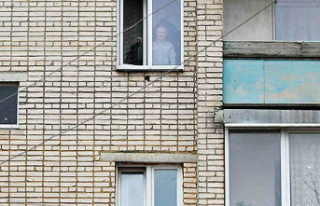The path is strewn with pitfalls. But, pending the opinion of the Constitutional Council on the pension reform, on April 14, the left is active to mobilize its support. The PS deputies Boris Vallaud and Jérôme Guedj, accompanied by their ecologist colleague Cyrielle Chatelain and a few others, had an appointment at the Palais-Royal on Tuesday April 4. The parliamentarians of the Nupes have exposed, during a great oral, the reasons why they consider that the pension reform must be censored.
In the aftermath of 49.3 drawn by Elisabeth Borne, citizen consultation becomes the last resort. Introduced in 2015, the shared initiative referendum (RIP) has actually existed since the constitutional reform of 2008. Three attempts, including two unsuccessful – on the hospital and superprofits – have taken place since.
In 2019, the Elders approved the bill aimed at canceling the privatization of Aéroports de Paris (ADP). Without final success since only 1.1 million signatures had been obtained out of the 4.7 million needed. According to a Cluster17 poll for Le Point, published on March 28, 71% of French people say they are ready to sign the referendum on pensions. Contacted to find out more about the terms of the future consultation, the Ministry of the Interior did not respond to our requests. Five stages structure the implementation of the shared initiative referendum.
The first phase consists of bringing together 185 parliamentarians out of the 925, or 20% of the elected members. 252 deputies and senators tabled a bill on Friday, March 17 to initiate the pension process.
The Constitutional Council must then validate the text. In this case, its approval should be, unless surprised, a formality. The Elders then indicate the number of supporters to be collected, which corresponds to 10% of the electorate.
After nine months of consultation, the Constitutional Council took over the file. The Sages validate the number of supports obtained by checking for potential fraud. If approved, the bill is sent to Parliament.
At the end, the text returns to the hands of the deputies and senators. The bill is deposited on the desk of the presidents of the two chambers. If the six-month period granted to examine the text is exceeded, the President of the Republic must submit the referendum to the French.
Several problems were highlighted during the 2019 referendum. In a note made public a few days after the end of the citizen consultation, the Elders had judged that the site allowing to collect support offered "unsuitable ergonomics" with a "lack of 'acknowledgment of receipt'. The Constitutional Council also criticized the very principle of the said referendum. The Sages considered that the procedure was "dissuasive and difficult to read for citizens", with a "very high number of supporters to be reached" and "the holding of a more than hypothetical referendum". Four years later, nearly 5 million votes must be collected. If the parliamentary level seems insurmountable at the moment, the subject of pensions will persist throughout the year...












